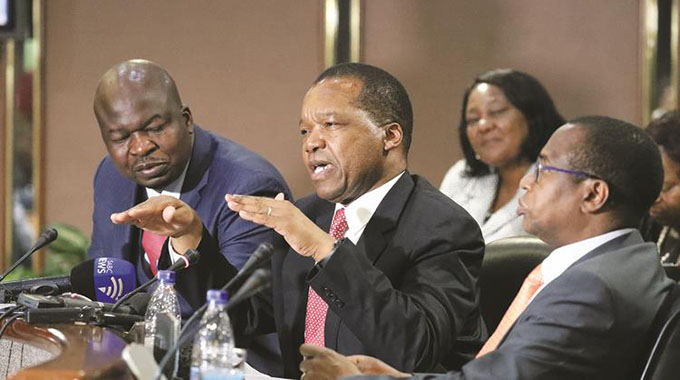Nathan Chikara: Let’s give the MPC time to deliver
By Nathan Chikara
The newly constituted Monetary Policy Committee (MPC) of the Reserve Bank of Zimbabwe (RBZ) had its inaugural meeting on the 28th and 29th of October 2019.

This was another milestone for the Central Bank in its quest to improve transparency and the credibility of its macro-economic policy-making structures.
Being the maiden meeting of the MPC, not many were expecting it to make substantive national positions during such a meeting.
As reason has it, when a new board or committee is set up to make important decisions, especially those that affect the livelihoods of 15 million citizens, the inaugural meeting naturally maps the terrain, appreciate the work at hand and come up with a strategic working plan to address each of the identified challenges. At its marathon meetings on October 21 and 22, did just that.
The MPC deserves a special commendation for being able to correctly identify the key threats to monetary and price stability affecting the economy during their very first meeting.
Furthermore, even though it was just the first meeting, the level of transparency and commitment to accountability by the MPC as reflected by the issuance of a press statement to inform stakeholders of their deliberations and subsequent interviews given by RBZ Governor Dr John Mangudya, were equally encouraging.
This is good practice which should even be extended to other committees of national significance, including boards of parastatals.
When one goes through the MPC statement, it is clear that they have been able to correctly conclude on issues to be addressed. These include money supply, exchange rate, inflation, cash challenges and operations of the interbank market.
The MPC indicated that it will be meeting fortnightly for the remaining part of the year and then meet monthly thereafter as they get to grips with the issues.
While the normal purpose and strategic consequence of an inaugural meeting appears obvious from both a corporate governance and common sense perspective, some Zimbabweans still find it to be rocket science. Surprisingly and maybe out of honest ignorance or dishonest mischief, the release of the MPC’s press statement on the 29th of October was met with baseless vitriol from some self-styled pundits.
Critics were saying the press release lacked resolutions or specific actions. But from their half-baked arguments, these armchair critics only betrayed their lack of analytical depth and poor appreciation of the importance of the decisions that an MPC has to make.
Some shockingly expected the MPC members to recklessly make uninformed pronouncements on such important variables as broad money supply and interest rate regime on the basis of just an inaugural meeting. God forbid!
I am glad the MPC members did not act like excitable and poorly trained child soldiers who open fire in battle without properly identifying and aiming at the enemy.
Just like the individual members who were appointed to the MPC, we need to be fair and give them time to deliver before we judge them.
It is common cause that Zimbabwe is afflicted with deep-seated structural imbalances, some of them have been with us for decades. It would, therefore, be kindergarten style and wishful thinking for one to expect the MPC to carelessly risk worsening the situation through half-backed solutions, rushed through in an inaugural meeting. In any case expecting the MPC to deal with such structural imbalances is not normal.
Therefore, those who are hungry and thirsty to judge should wait and give the committee time to work and deal with the issues.
Although fairness demands that we give the committee a chance to work, it is imperative that the MPC takes serious cognisance of the weight of national expectations that is placed on them.
It is, therefore, critical that the MPC members take their mandate very seriously and deliver value to the expectant stakeholders.
Time is not their side and surely, one day Zimbabweans will judge them on their success or ineptitude depending on the results of their work.
Nathan Chikara is an economist with a South African-based insurance firm. He writes here in his personal capacity. For feedback, e-mail to [email protected]






